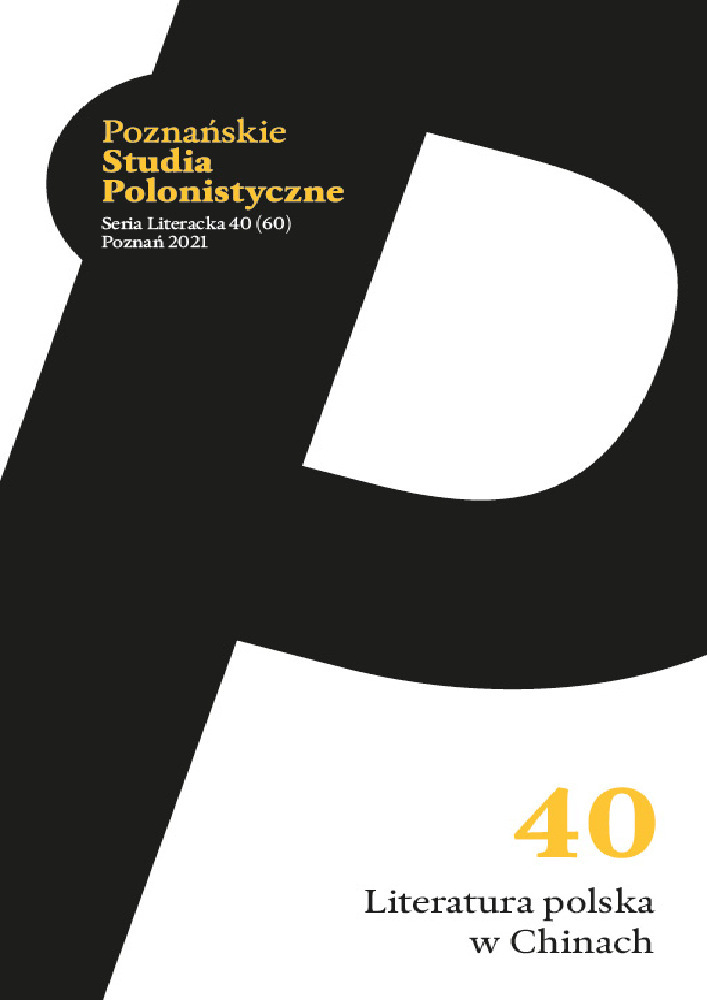Abstrakt
The article presents an overview of the issues discussed in Tomasz Ewertowski’s monograph Images of China in Polish and Serbian Travel Writings (1720–1949). It reconstructs the discourse that emerges from the journals as their authors report on their journeys to the Middle Kingdom. The article also analyses the conditioning of the presented attitudes in the context of individual experience. Using imagology-based tools, Ewertowski refers to the mental representations of reality recorded in the text in the form of stereotypically formed ethnotypes. Ewertowski creates a mosaic of the way travellers from the West imagined both Chinese cities and the characteristic features of Far Eastern culture, which is often marked by Eurocentrism and an evaluating attitude towards the Other.
Bibliografia
Ewertowski Tomasz (2020), Images of China in Polish and Serbian Travel Writings (1720-1949), Brill Rodopi, Leiden–Boston.
Fritzsche Sybille C. (1995), Narrating China: Western Travelers in the Middle Kingdom after the Opium War, Ann Arbor, [University Microfilms].
Jovanović Milan (1895), Tamo amo po istoku. Sveska druga, Srpska književna zadruga, Beograd.
Kennedy Duncan F. (1999), A Sense of Place: Rome, History and Empire Revisited, w: Roman Presences. Receptions of Rome in European Culture, 1789-1945, red. Catherine Edwards, Cambridge University Press, Cambridge, s. 19-34.
Leerssen Joep (2017), Imagologia: o zastosowaniu etniczności do nadawania światu sensu, przeł. Emilia Kledzik, „Porównania”, t. 21, nr 2, s. 9-30, https://doi.org/10.14746/p.2017.21.13943.
Nycz Ryszard (2015), Inny jak ja. (Trzy i pół glosy do aktualnego teoretycznie i praktycznie problemu), „Teksty Drugie”, nr 6, s. 7-14.
Wierzbicka Anna (2020), Słowa klucze. Różne języki – różne kultury, Wydawnictwa Uniwersytetu Warszawskiego, Warszawa.
Licencja
Autorzy
Autorzy tekstów przyjętych do publikacji w czasopiśmie „Poznańskie Studia Polonistyczne. Seria Literacka” są zobowiązani do wypełnienia, podpisania i odesłania na adres redakcji umowy o udzielenie nieodpłatnej licencji do utworów, z zobowiązaniem do udzielania sublicencji CC.
Zgodnie z umową, autorzy tekstów opublikowanych w czasopiśmie „Poznańskie Studia Polonistyczne. Seria Literacka” udzielają Uniwersytetowi im. Adama Mickiewicza w Poznaniu niewyłącznej i nieodpłatnej licencji oraz zezwalają na użycie sublicencji Creative Commons Attribution-NoDerivatives 4.0 International (CC BY-ND 4.0).
Autorzy zachowują prawa do dalszego, swobodnego rozporządzania utworem.
Użytkownicy
Zainteresowani użytkownicy internetu uprawnieni są do korzystania z utworów opublikowanych od 2016 roku w „Poznańskich Studiach Polonistycznych. Serii Literackiej” pod następującymi warunkami:
- uznanie autorstwa – obowiązek podania wraz z rozpowszechnionym utworem, informacji, o autorstwie, tytule, źródle (odnośniki do oryginalnego utworu, DOI) oraz samej licencji;
- bez tworzenia utworów zależnych – utwór musi być zachowany w oryginalnej postaci, nie można bez zgody twórcy rozpowszechniać np. tłumaczeń, opracowań.
Do wszystkich tekstów opublikowanych przed 2016 r. prawa autorskie są zastrzeżone.
Inne
Uniwersytet im. Adama Mickiewicza w Poznaniu zachowuje prawo do czasopisma jako całości (układ, forma graficzna, tytuł, projekt okładki, logo itp.).
